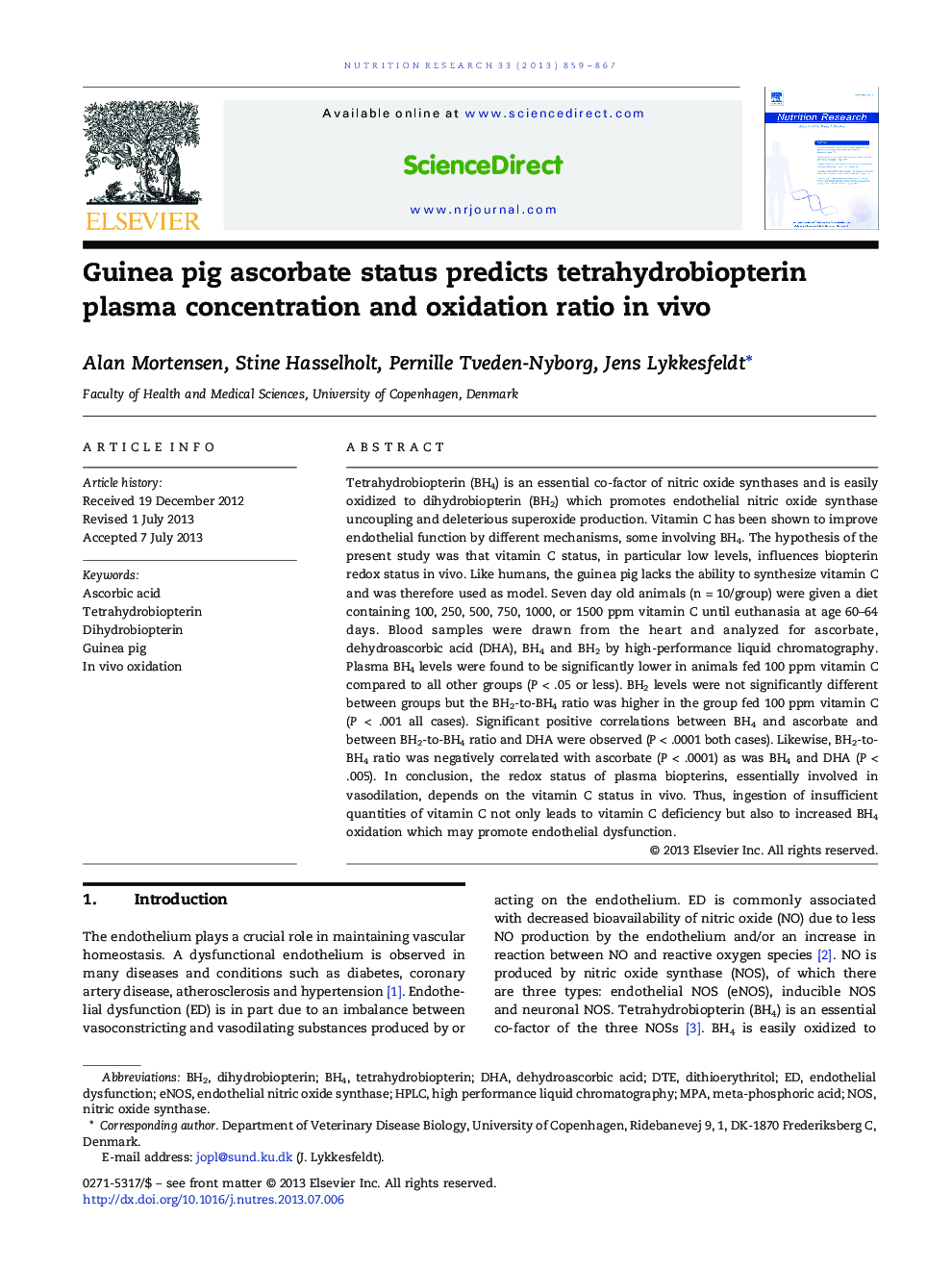| کد مقاله | کد نشریه | سال انتشار | مقاله انگلیسی | نسخه تمام متن |
|---|---|---|---|---|
| 2809266 | 1158029 | 2013 | 9 صفحه PDF | دانلود رایگان |

Tetrahydrobiopterin (BH4) is an essential co-factor of nitric oxide synthases and is easily oxidized to dihydrobiopterin (BH2) which promotes endothelial nitric oxide synthase uncoupling and deleterious superoxide production. Vitamin C has been shown to improve endothelial function by different mechanisms, some involving BH4. The hypothesis of the present study was that vitamin C status, in particular low levels, influences biopterin redox status in vivo. Like humans, the guinea pig lacks the ability to synthesize vitamin C and was therefore used as model. Seven day old animals (n = 10/group) were given a diet containing 100, 250, 500, 750, 1000, or 1500 ppm vitamin C until euthanasia at age 60–64 days. Blood samples were drawn from the heart and analyzed for ascorbate, dehydroascorbic acid (DHA), BH4 and BH2 by high-performance liquid chromatography. Plasma BH4 levels were found to be significantly lower in animals fed 100 ppm vitamin C compared to all other groups (P < .05 or less). BH2 levels were not significantly different between groups but the BH2-to-BH4 ratio was higher in the group fed 100 ppm vitamin C (P < .001 all cases). Significant positive correlations between BH4 and ascorbate and between BH2-to-BH4 ratio and DHA were observed (P < .0001 both cases). Likewise, BH2-to-BH4 ratio was negatively correlated with ascorbate (P < .0001) as was BH4 and DHA (P < .005). In conclusion, the redox status of plasma biopterins, essentially involved in vasodilation, depends on the vitamin C status in vivo. Thus, ingestion of insufficient quantities of vitamin C not only leads to vitamin C deficiency but also to increased BH4 oxidation which may promote endothelial dysfunction.
Journal: Nutrition Research - Volume 33, Issue 10, October 2013, Pages 859–867